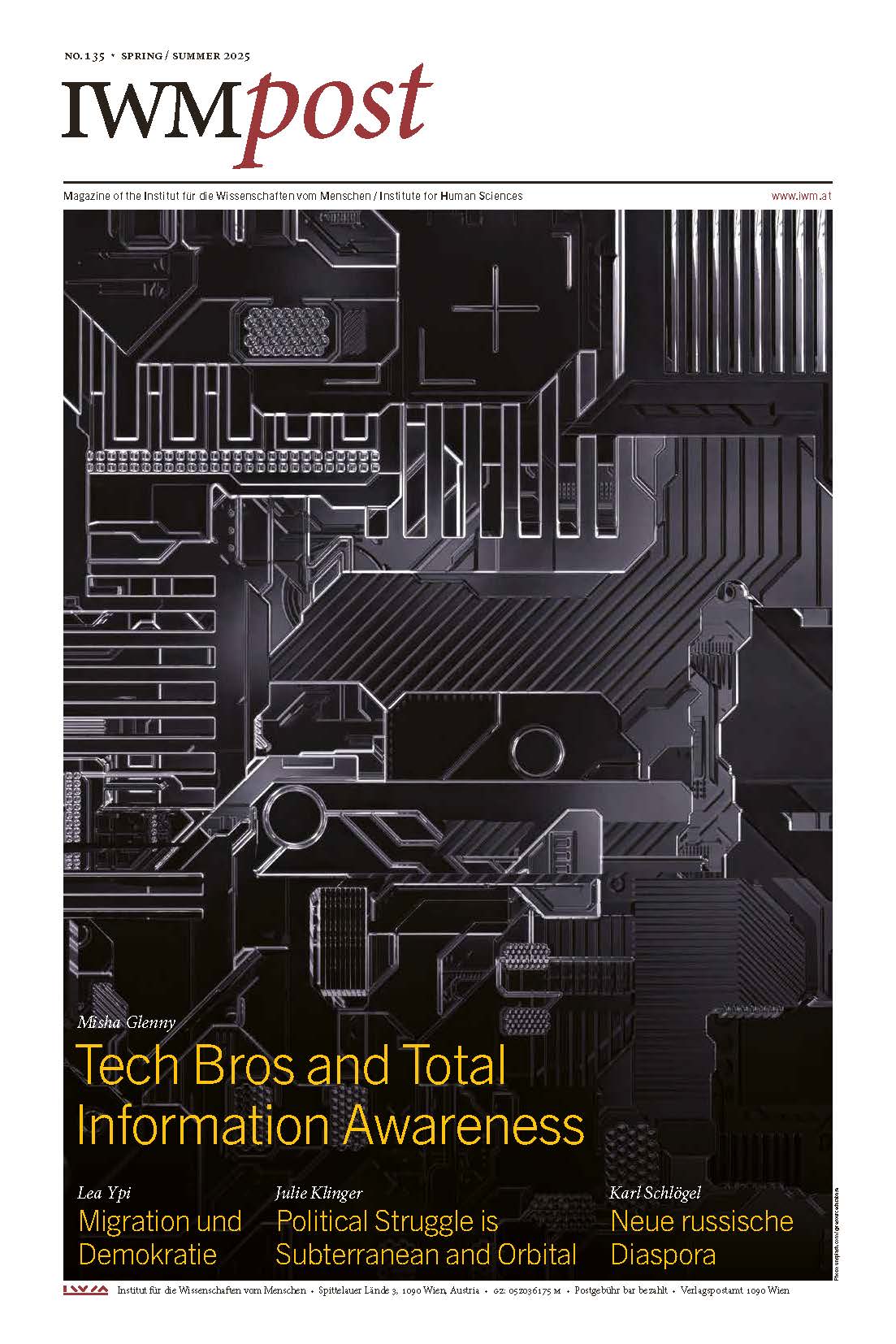
Perhaps it is due to the tremendous political changes of our time that a majority of the essays in this edition address political issues. Several contributions focus on the current crisis of democracy. In the lead article, IWM Rector Glenny discusses the growing power of the tech industry in the US, which is attempting to consolidate its position through extraordinary access to classified information.
Özel offers a sober analysis of Trumpism in the USA, Khorsand addresses the response of judiciaries to efforts to restrict their independence, and Ypi, in her “Speech to Europe,” links the restrictive migration policies of Western states to the crisis their democracies are facing. Slačalek and Sharon focus on dimensions of the new nationalism that radically distinguish it from its earlier forms, while Antonova reflects on the increasing suspension of ethical references in political language. Finally, Korda discusses the relevance of Hegel's insights for contemporary international relations.
The image of Europe in the past and present is the subject of the essays by Kuchno and Merli. Three articles focus on Russia: Meister draws attention to Russia's weakness, Schlögel tackles the new Russian diaspora, and Mostovshikov addresses the propaganda function of Russian museums in times of war. Memory and museum policy in Poland is the subject of Kostro’s contribution.
Contemporary challenges are at the center of three essays. Klinger points to the considerable complexity of political struggles, which include subterranean and orbital dimensions. Akkermans and Bon call for democratic control of technology in view of the explosive development of AI, and Striano discusses the issue of digital violence.
While most contributions point to worrying developments, Georgiev draws attention to signs of an upturn and a reversal of population decline in Central and Eastern Europe.
Hagedorn, Contius, and Czyżewski pay tribute to the writer, memory worker, democracy advocate, and friend of the IWM, Martin Pollack, who passed away in January. Finally, Nellen, co-founder and former permanent fellow of the IWM, introduces the IWM archives.